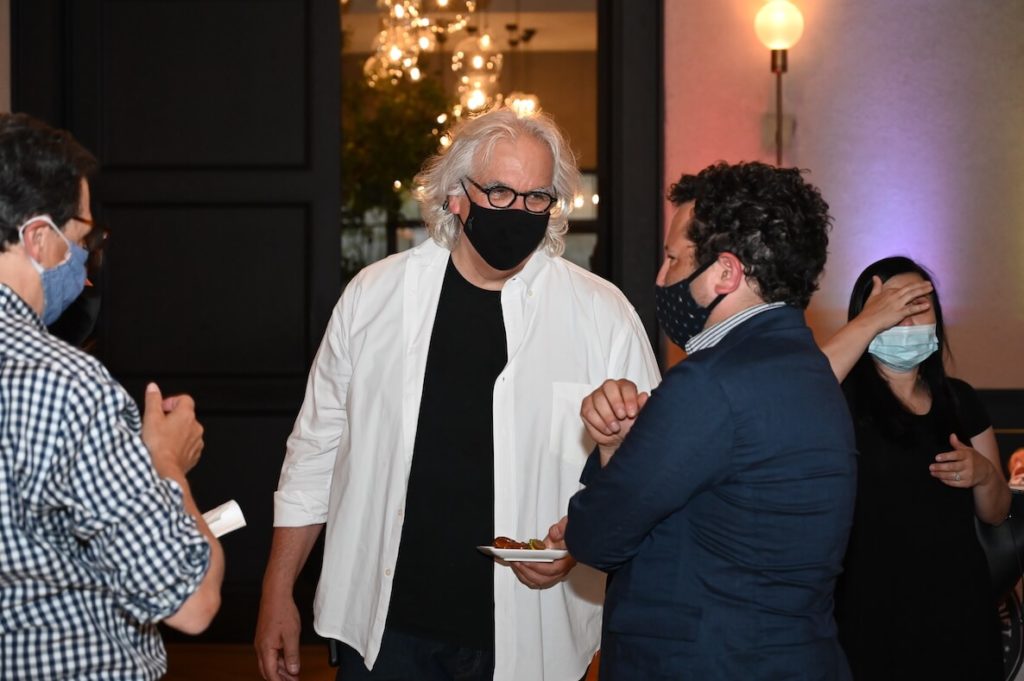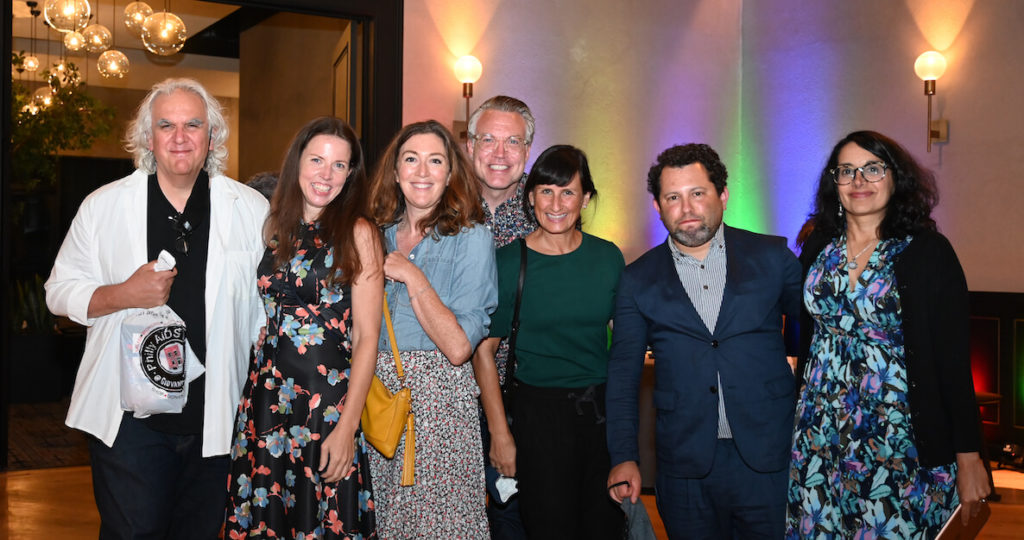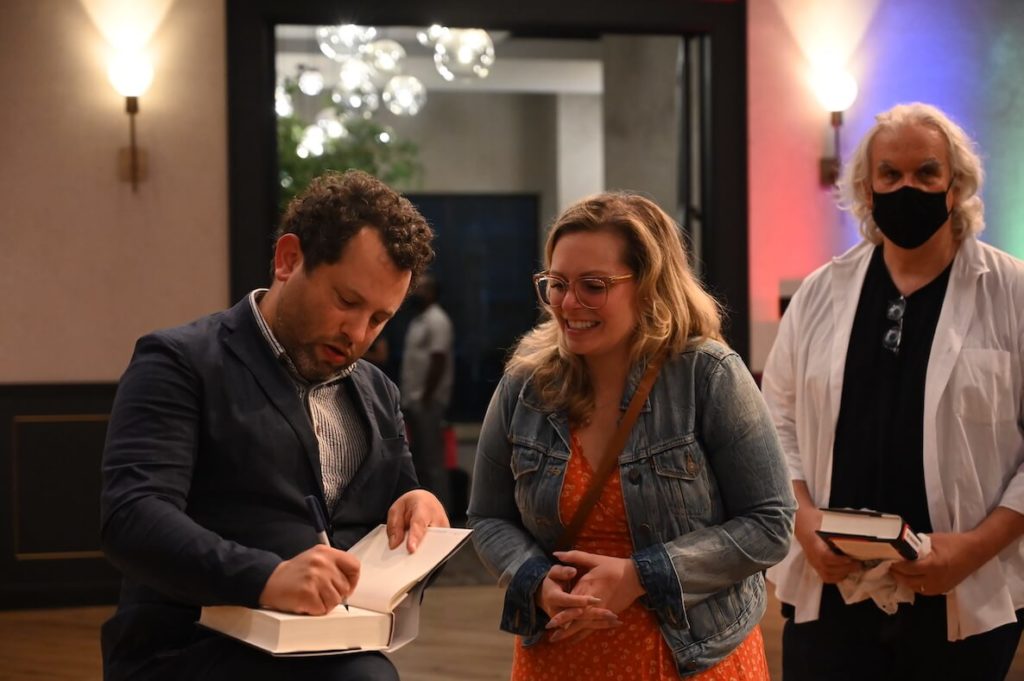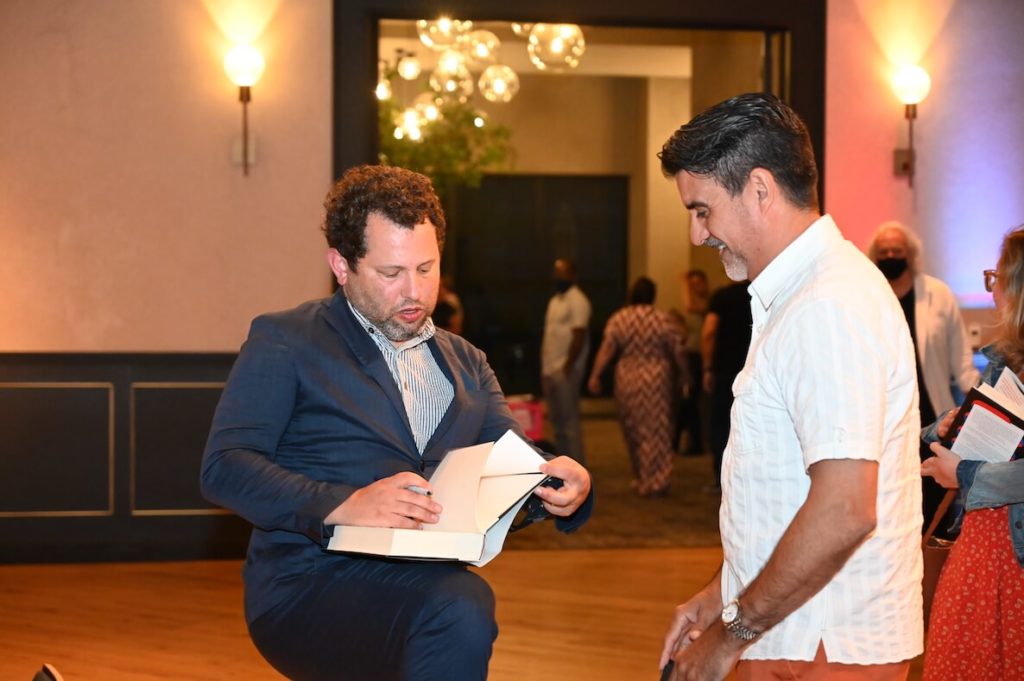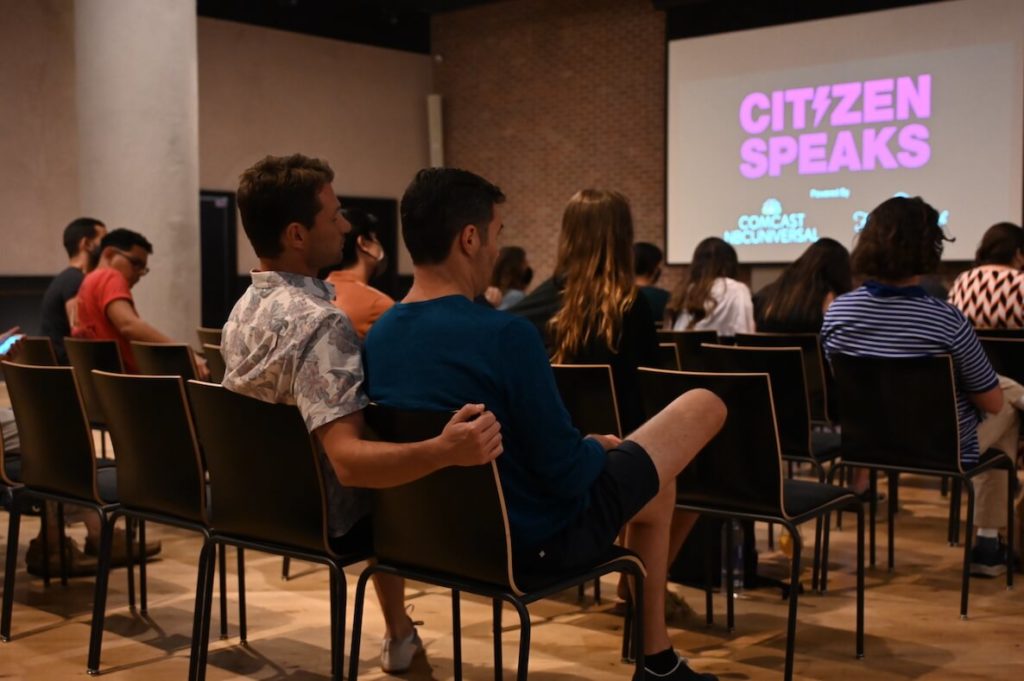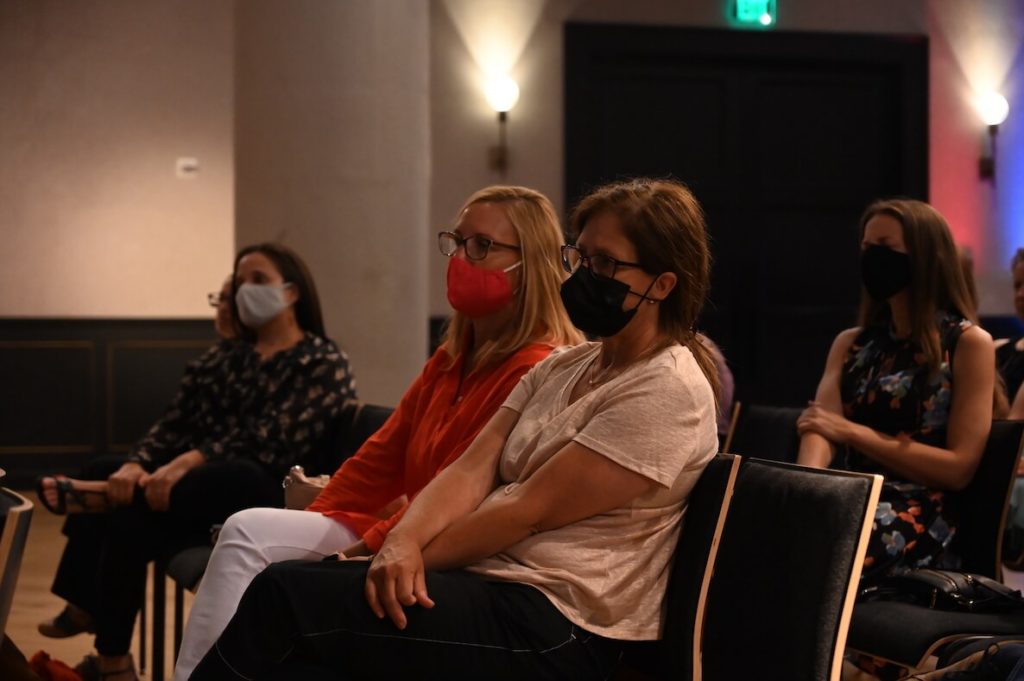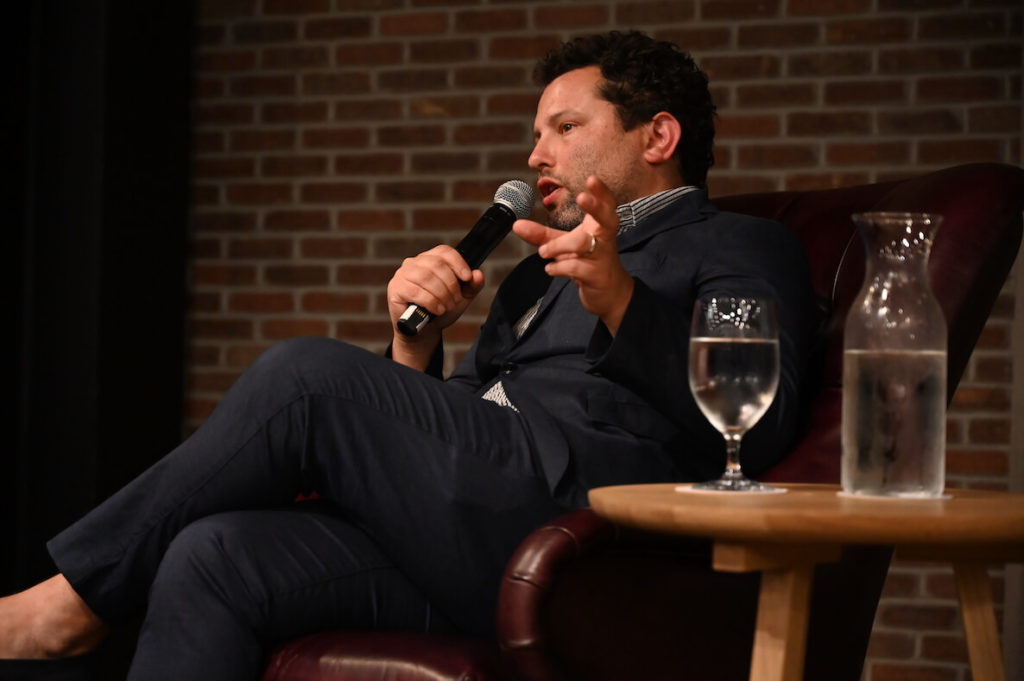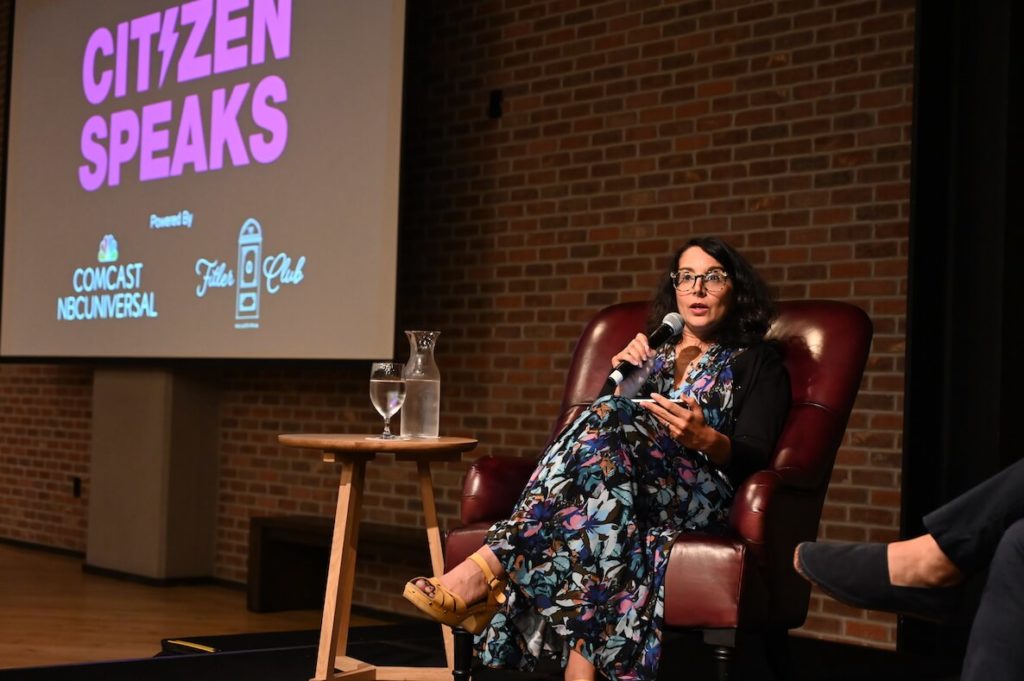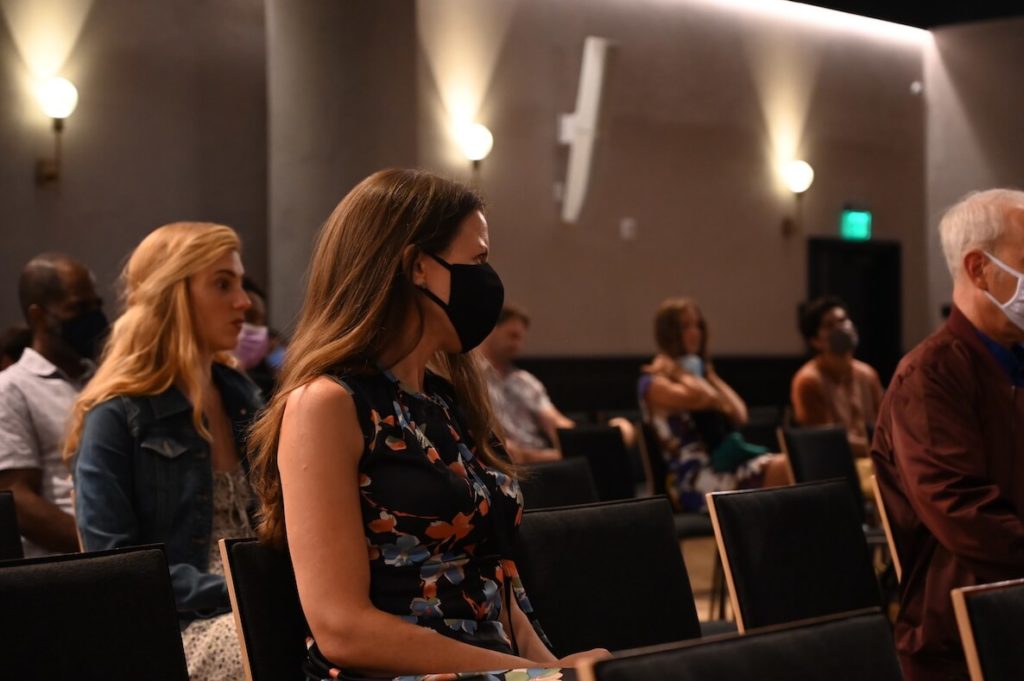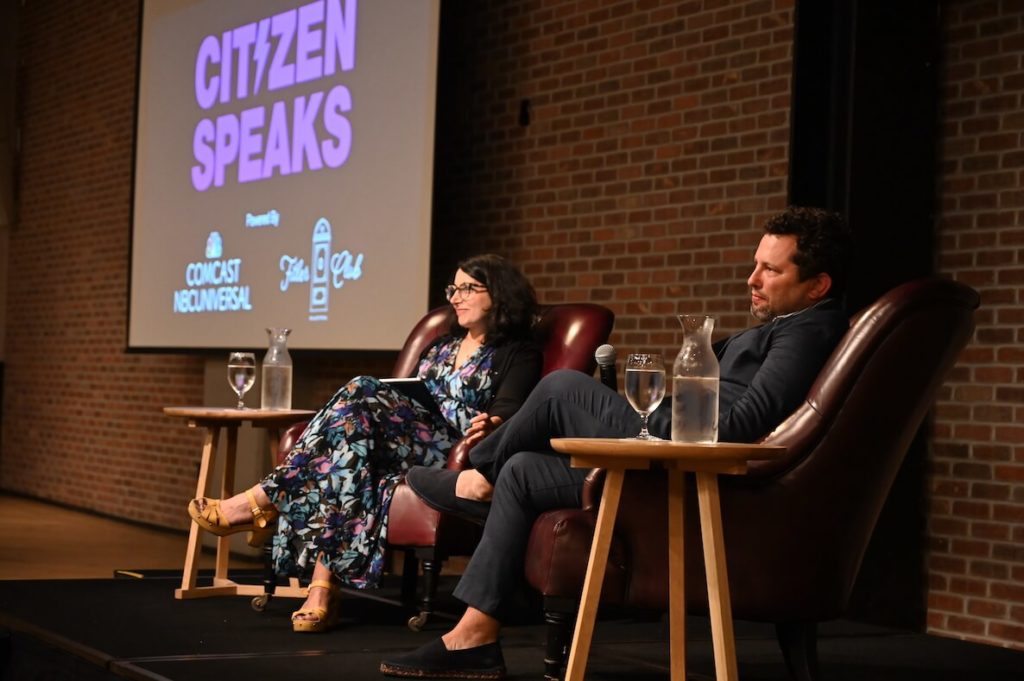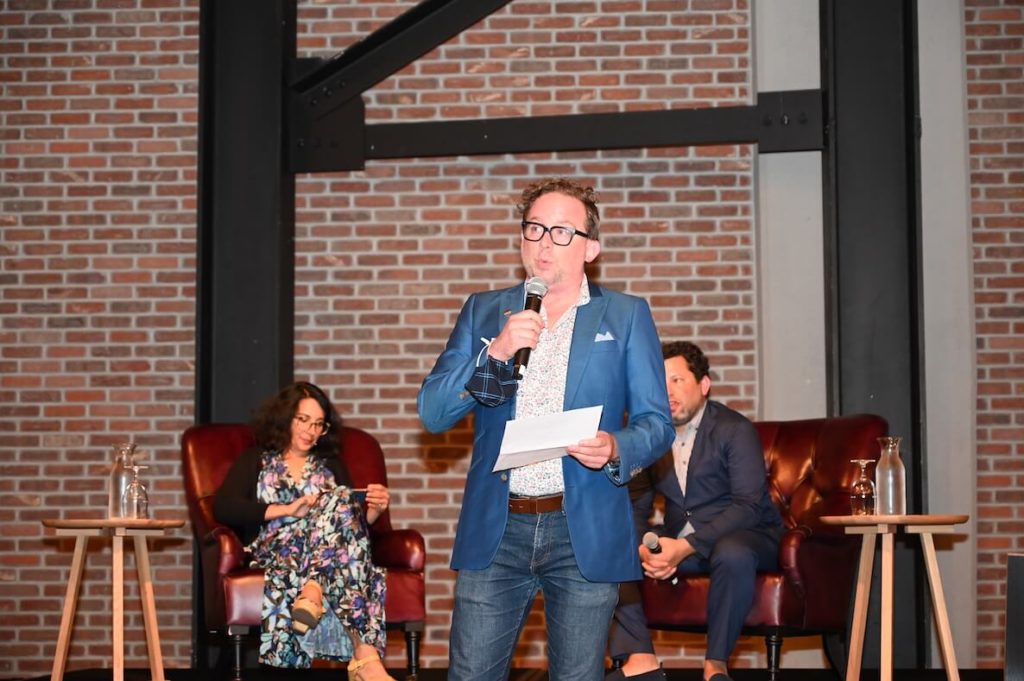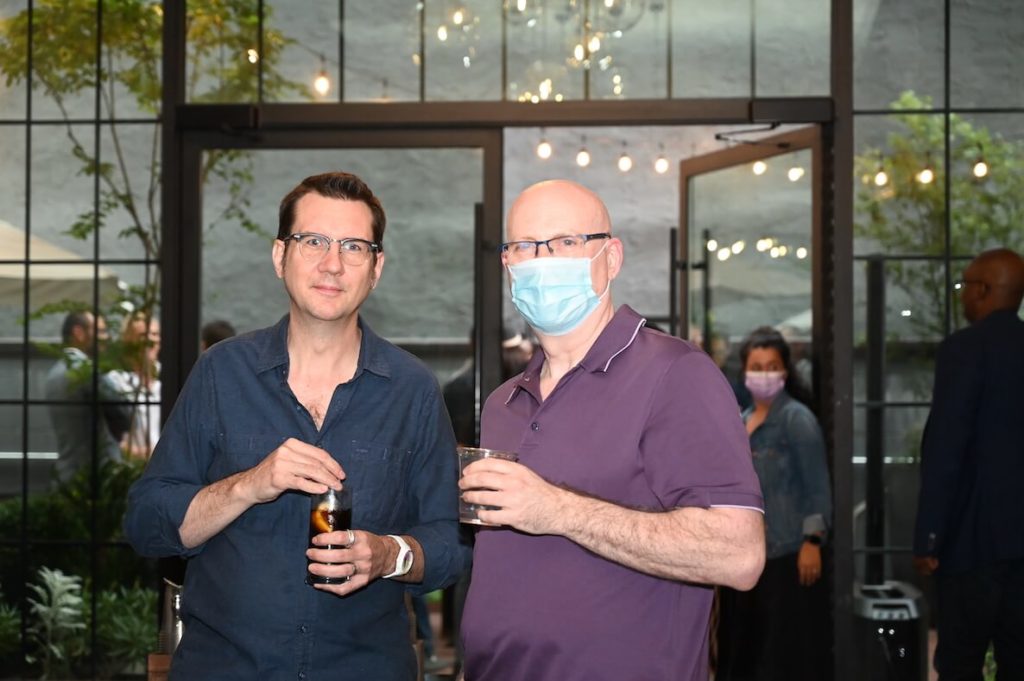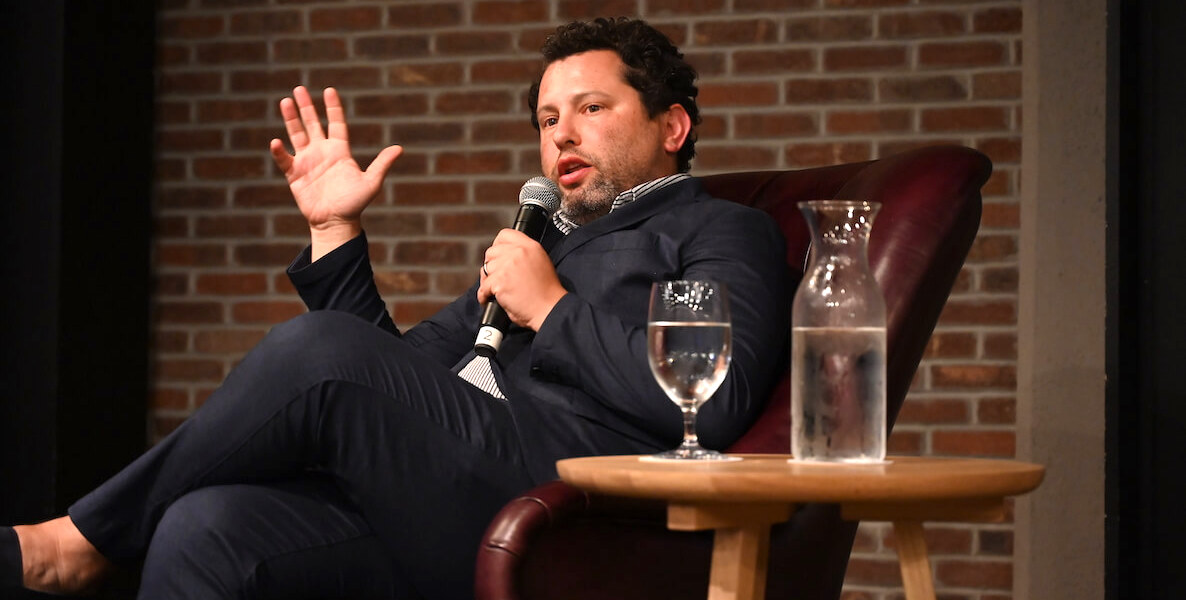The legalization of same-sex marriage in 2015 didn’t begin or end the LGBTQ+ rights movement. Just recently, Philly was at the center of a U.S. Supreme Court ruling that said a Catholic social services agency could refuse to work with same-sex couples looking to take in foster children.
But the Court’s ruling in Obergefell v. Hodges, which ultimately made marriage equality the law of the land, was a definitive end to a 25-year struggle that few saw coming. Marriage was barely on the table until a Hawaii activist took it upon himself to force the issue 4,700 miles from D.C. After that, the speed at which this fight cropped up, and was settled, was startling—and inspiring.
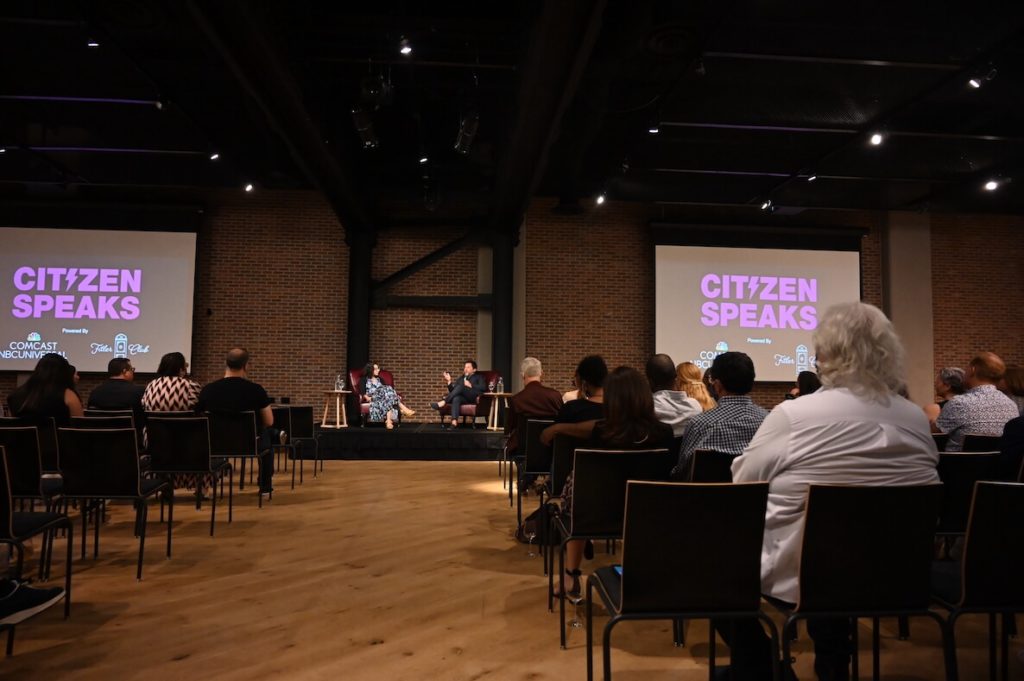
How it happened—and what it means for other similar movements—was the heart of last week’s Citizen Speaks event, powered by Comcast NBCUniversal and Fitler Club, with Sasha Issenberg, former Philadelphia-based journalist and author of The Engagement: America’s Quarter Century Struggle Over Same-Sex Marriage.
RELATED: Read an excerpt from Issenberg’s The Engagement
Below, six key takeaways from Issenberg’s conversation with Roxanne Patel Shepelavy, The Citizen’s executive editor. For more, order a copy of the book from our event partner, Philly AIDS Thrift @ Giovanni’s Room.
In case you missed it, you can watch the full event here. And don’t forget to check out our upcoming events—including the 2021 Ideas We Should Steal Festival—here.

1. Events in the 1990s created a political perfect storm that catapulted the same-sex marriage debate to the forefront
Post-Cold War and pre-War on Terror, politics in the 1990s were pretty low-stakes. “This just created a void in which basically as a country we needed things to fight over,” Issenberg said, “and there was an opportunity for a lot of social and cultural issues to emerge.”
Marriage equality wasn’t a priority for LGBTQ+ rights organizations at the beginning of the 1990s—until The Church of Latter Day Saints openly set out to prevent same-sex couples from marrying. The conservative religious movement and the LGBTQ+ rights movement simultaneously came about and set the stage for a battle surrounding marriage equality.
2. Before this, LGBTQ+ rights groups weren’t even sure if marriage equality was a priority
“There was a pretty active debate at a very abstract level in the 1980s about whether marriage was worth fighting for,” Issenberg said. Some members of the LGBTQ+ rights movement thought that there were more important, easier to achieve, priorities—like equal protection legislation. There was also the ideological argument against marriage as a heteronormative, patriarchal institution.
3. Marriage equality ruling faced less backlash than other social justice Supreme Court decisions
There were a few reasons for this relatively limited backlash compared to cases, like Roe v. Wade and Brown v. Board of Education. First, the implementation of this decision was relatively easy.
“The Supreme Court ruled in 1954 that public schools had to be desegregated, and we’re now 70 years later and we don’t know how to actually desegregate neighborhood public schools,” Issenberg said. “A lot of the backlash to Brown…came from the fact that people’s lives were disrupted when this court order came down and that the local politics of figuring out how to actually do this on the ground was really tough.” Opponents of Obergefell v. Hodges didn’t really see their lives directly impacted in any way.
And former President Donald Trump—who announced his presidency just two weeks later—chose not to focus on marriage equality in his presidential campaign. “For all of his instinct and gift for pitting people against one another on identity lines, he’s not terribly judgmental about who you have sex with and who you’re married to,” Issenberg said. “If Donald Trump had decided to make his campaign during the primaries and the general election about ring-leading conservative reaction to the Supreme Court decision, people like Ted Cruz would have followed, and I think we would have spent a lot more of that election year focused on the Supreme Court decision.”
4. Marriage equality benefited from cancel culture, showing the power of the movement
We tend to debate the propriety of cancel culture as a tactic, but we don’t talk enough about its effectiveness, Issenberg said. The internet allowed political operatives to organize boycotts against influential figures in business who supported anti-same-sex marriage causes. By 2012, the financial advantage had shifted away from opponents of marriage equality towards supporters, significantly impacting the movement. “In business circles and elite opinion, this became an unacceptable position to have,” he said.
5. Still, the future of LGBTQ+ rights is up in the air with the current Supreme Court
Even with an increasingly conservative Supreme Court, Issenberg isn’t worried that Obergefell v. Hodges will be overturned. “I have seen no evidence in the six years since Obergefell that there is anybody who states a goal of reversing Obergefell,” he said, “and I do not see any evidence of trying to lay the building blocks to get the court incrementally to go back and revisit the court holding.”
That doesn’t mean the fight over marriage is definitively over, though. One scenario, Issenberg imagines: A company claiming its religious values won’t let it recognize same-sex married couples, and offering benefits only to employees in heterosexual relationships. “The question is, How much leeway do private actors have to treat different types of marriages differently based on a private actor’s values?” he said.
6. The fact that marriage equality wasn’t inevitable shows that change can occur fairly quickly
Obergefell v. Hodges wasn’t inevitable. In the remarkably short time span of 25 years, marriage equality went from having no place in United States politics to having the Supreme Court state it as a fundamental right in the Constitution. There was also no guarantee that LGBTQ+ rights activists and donors would focus on this issue or that religious conservatives would elevate this issue.
“It was not inevitable that [same-sex marriage] was going to become the defining sociocultural debate of most of our lifetimes,” Issenberg said. “The lesson in that, for people who care about social change, is that the issues that are in front of us, that are in front of our legislators and politicians…the questions that are before our courts today, do not need to be the questions that we are talking about five or ten years from now. There is a remarkable ability to change the issues that are in front of us and the choices that political and legal systems have…I think this should be inspiring to people who want to bring new issues into a conversation.”
PHOTOS FROM THE EVENT
